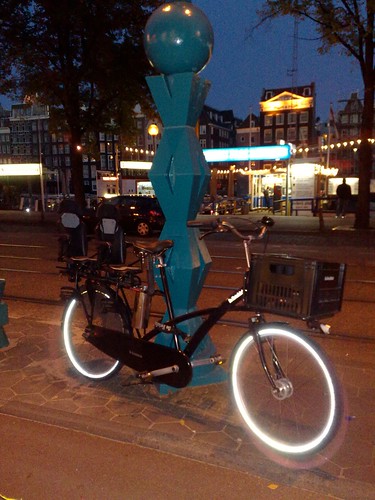How Geert Wilders won in Dutch elections – and what happens next
Dutch #Dutch

Geert Wilders’ landslide victory in the Dutch elections has transformed him from political pariah to a potential prime minister.
The veteran firebrand, infamous for his fiercely anti-Islam rhetoric, has shocked the Netherlands and Europe with his disruptive victory.
The 60-year-old has fought many elections since becoming a MP in 1998 without so much of a sniff of a formal role in government.
This time, after winning 37 seats in the hugely fragmented world of Dutch politics and leaving the establishment parties in the dust, it is different.
The hard-Right has never won a general election in the Netherlands. In fact, for the last 13 years the country has had the same prime minister.
Mark Rutte, the longest serving Dutch prime minister in history, resigned after his government collapsed in July over his push for tougher rules on migration.
Voters, faced with the highest migration numbers in 20 years, a cost of living and housing crisis, were ready for a change.
In March the BBB, a farmer’s party, won a shock landslide victory in regional elections which became a referendum on the leader of the conservative VVD’s time in office.
Mr Rutte’s successor as VVD leader is Dilan Yesilgöz, a 46-year-old Turkish born former refugee who promised to crack down on migration and limit asylum seekers’ family reunification rights.
For his part, Mr Wilders was calling for “zero asylum seekers” and closed borders in a country where a tough stance on migration is often a vote-winner.
Ms Yesilgöz did not follow Mr Rutte’s strategy of excluding Mr Wilders from any future coalition negotiations.
Her plan appeared to be to split the burgeoning anti-establishment vote among several Right-wing populist parties to ensure the VVD’s continued dominance.
At first, it seemed to be working, especially after the hugely popular campaigning MP Pieter Omtzigt set up his “radical centrist” New Social Contract party three months ago.
Dilan Yesilgöz has promised to crack down on migration and limit asylum seekers’ family reunification rights – Patrick van Katwijk/Getty Images
The Dutch farmers’ party began shedding support to Mr Omtzigt, a centre-Right politician, and to Mr Wilders’ Freedom Party (PVV).
Ms Yesilgöz was in a strong position and led the polls after Mr Omtzigt bafflingly declared he might not want to be prime minister after all.
Mr Wilders’ also benefited from the gaffe, winning support from BBB and NSC voters.
He moderated his usually harsh rhetoric as he scented a chance of government; even promising to be Prime Minister for “all the Dutch” including the almost a million Muslims in the Netherlands.
Mr Wilders dropped his manifesto calls for a ban on mosques, insisting other priorities such as immigration and healthcare were more important.
Tactical voting is part and parcel of the Dutch elections, where voters are faced with a ballot paper containing 29 different parties.
As Mr Wilders’ momentum grew, he attracted voters from other Right-wing parties, including the NSC and BBB, who stood no chance of government.
The election was shaping up to be a three horse race between the VVD, the PVV and the Groenlinks-PvdA, an alliance of Left-wing and green parties led by ex EU climate boss Frans Timmermans.
Mr Timmermans was waging a “Project Fear” style campaign, warning Left-wing voters that only he could stop a Right-wing coalition.
Geert Wilders won 37 seats in the Dutch elections – Peter Dejong/AP
But the European Commission heavyweight’s strategy also backfired, encouraging conservative Dutch voters to back Mr Wilders to ensure the next coalition government would be Right-wing.
The day before the election, Mr Wilders took a narrow single seat lead ahead of the VVD and Groenlinks-PvdA, with a predicted 28 MPs. A day earlier polls had him in third.
When the ballots were counted, it emerged he had won a crushing victory of 37.
The triumph was hailed by Europe’s hard-Right leaders as a game changer ahead of European Parliament elections next year that looks set to be a battle between nationalist and pro-EU parties.
So what happens next? Mr Wilders, whose manifesto calls for a Nexit referendum and the banning of mosques, faces a tough struggle to convince traditional parties to join him in government.
Ms Yesilgöz has said she would not serve under Mr Wilders if he was prime minister but could be tempted to join forces with him, if she was made head of government.
That could leave Mr Wilders with a high-profile ministerial role and a legacy for his decades in Dutch politics as provocateur and outsider.
Mr Wilders has the first attempt to form the government, as the biggest party, but faces a struggle due to his lack of government experience and fierce euroscepticism
Ms Yesilgöz is now probably obliged to go through the motions of coalition talks with the shock-haired populist.
If that fails, Mr Timmermans, who came second, beating the VVD by a single seat with 25, can try but his route to power is as complicated with a clear majority of the Dutch preferring conservative parties.
In contrast, Ms Yesilgöz, when her time comes, can rely on the support of other Right-wing parties including the NSC, which is now set for a kingmaker role with 20 seats.
The woman dubbed a “pitbull in high heels” could still become the first female Prime Minister in Dutch history but only after months and months of long coalition negotiations.
Until then “Teflon Mark” Rutte, tipped to be Nato’s next Secretary General, will continue his lengthy stint in office as caretaker Prime Minister.
Broaden your horizons with award-winning British journalism. Try The Telegraph free for 1 month, then enjoy 1 year for just $9 with our US-exclusive offer.